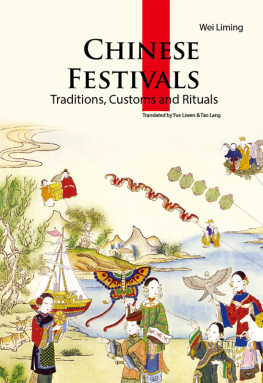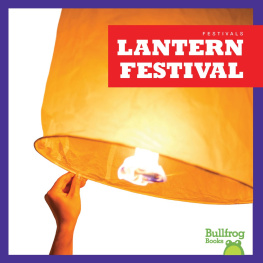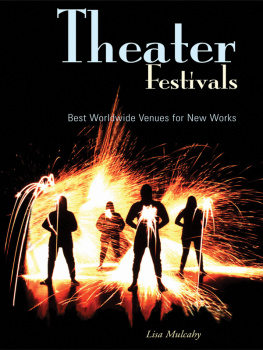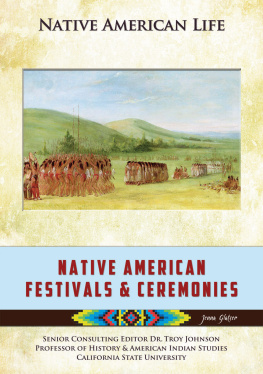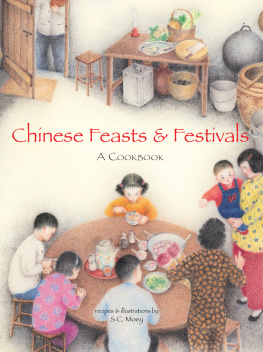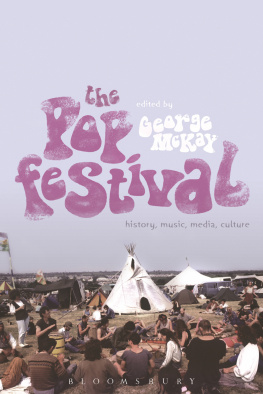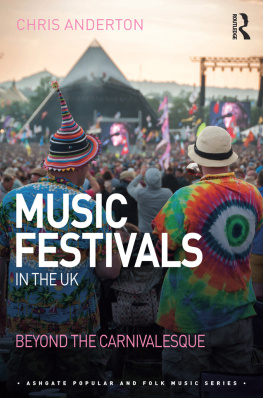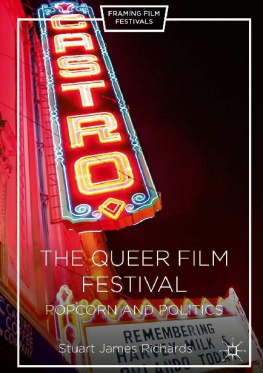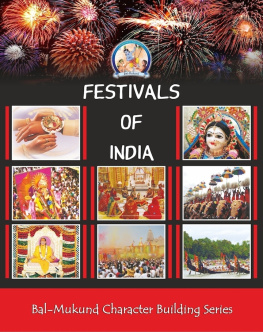
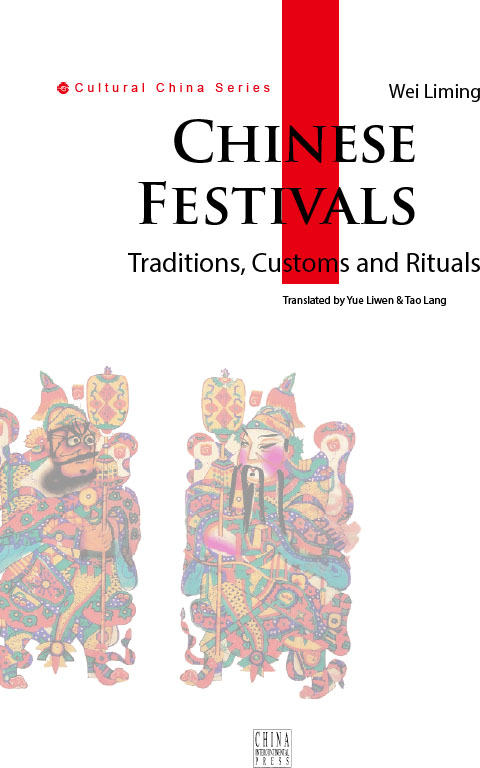
Contents
Executive Editor Deng Jinhui

Art Director Tian Lin
Wei Liming was born in Beijing in 1950. She worked in the Institute of Biophysics of Chinese Academy of Sciences and Beijing Review magazine in succession. Her works (including those in collaboration with other people) mainly include: China's Ancient Civilization and the World, Painting in China, Silk in China, New Archaeological Discoveries in Recent Five Years in China, and Wushu in China, etc.
Introduction
C hina is a country with a long history of about 5,000 years. In its ever-forward history course there have developed a good number of traditional festivals which are of rich varieties and long standing. The culture of festivals rooted deeply in the people, and it thus shows its enormous vitality. In spite of the change of times, it has gradually become part of the heritages of the colorful Chinese culture.
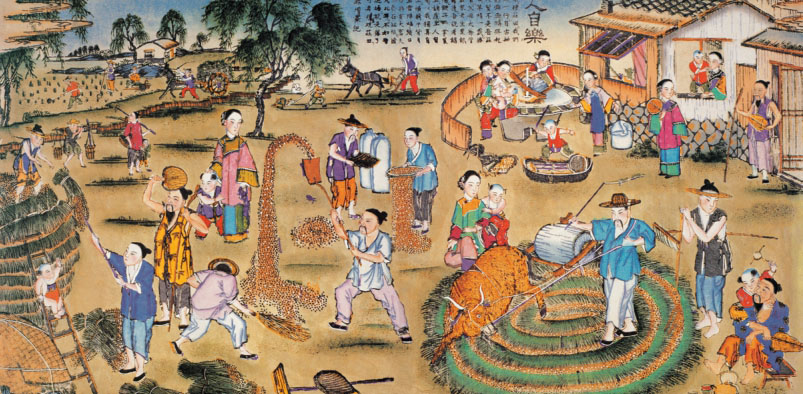
"Joyful Peasants," New Year poster. Absolutely different festivals and customs can be formed on the basis of traditional agricultural production.
The generation and development of festivals is a course of their shaping, perfecting and then their gradual integrating with the social life. It is the result of the social development which has reached a certain stage. The increasing productive force of the society, the ever-improving conditions of people's life, and the emergence and frequence of the religious activities has all provided a stage for the emerging and developing of festivals. Most of the traditional festivals in ancient China had something to do with the development of astronomy, calendar and mathematics. The beginning of these traditional festivals was particularly related to the later decided 24 seasonal division points under the traditional Chinese lunar calendar. All of the 24 seasonal divisions had almost been settled by the time of Han Dynasty (206 BCAD 220). These divisions helped to form festivals, for in their work and life, people developed different customs and activities which can express their good wishes according to the yearly change of seasons and natural phenomena. Based on these customs and activities, Chinese festivals began to take their shapes.
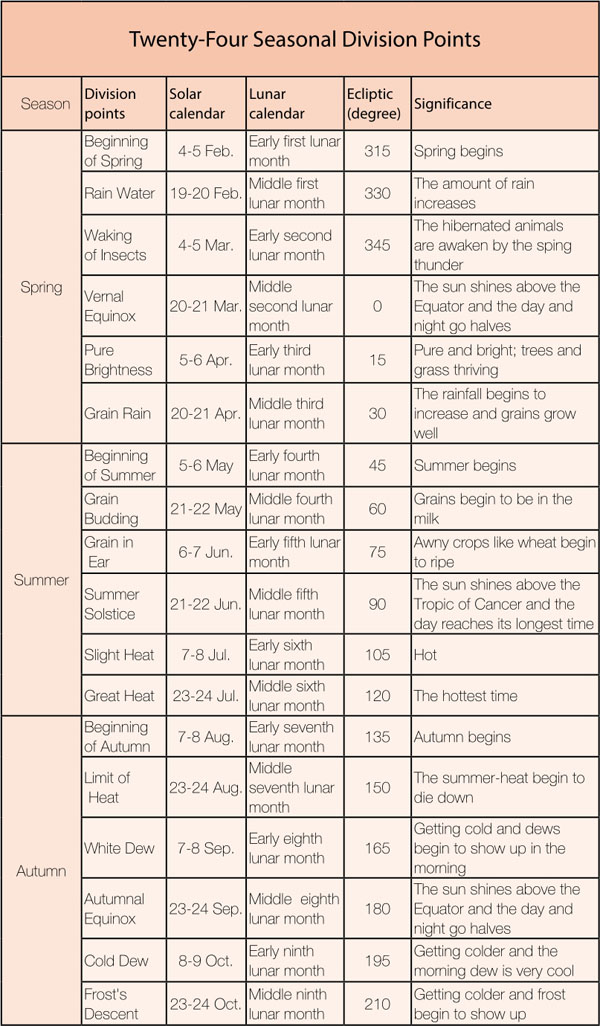
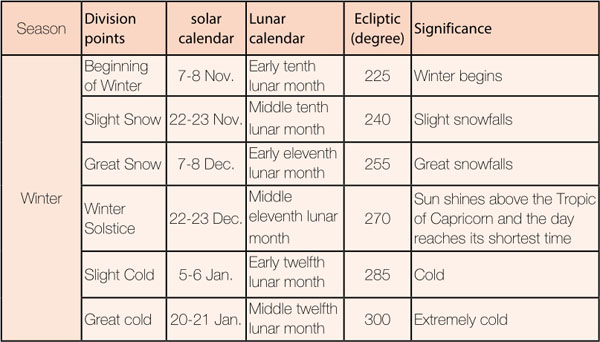
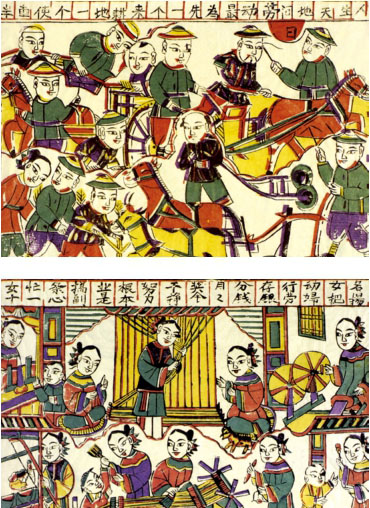
"Busy peasants" and "Busy peasant women," New Year posters of Yangjiabu, late-Qing Dynasty.
A large part of the Chinese festivals had already showed the rudiment in the pre-Qin Dynasty (before 221 BC), such as the New Year's Eve, New Year's Day, Lantern Festival, Shangsi Festival, Hanshi Festival, Dragon Boat Festival, Double Seventh Festival, and Double Ninth Festival. However, the shaping and spread of the customs has gone through a long time of development. The primal customs were related to the primitive worship and some superstitions and they often had something to do with the colorful legends and stories, which have covered a romantic veil on the festivals. The religion also influenced the festivals to a certain extent. Some historical figures, after merging into the culture of festivals, also became more memorable in the history. All these factors have contributed to the profound historic and cultural charm of festivals.
By the time of Han Dynasty, the major traditional Chinese festivals had been settled to a large extent. The Han Dynasty was the first golden period after the great union of the whole country. At that time, the nation was in a stable position in terms of political and economic life, and science and technology were developing rapidly. Regional cultures such as the cultures of Qin, Chu and Qi-Lu, which had had a long history, integrated with each other in such a historic way that they finally formed a cultural community, which is represented by the culture of Han nationality. The factors above helped to create social and cultural conditions for the finalization of festivals.
Coming to the Tang Dynasty (618907), the festivals had stripped off its mysterious coat of primitive sacrifices and superstitions and changed into more entertaining amusement. Many relaxing activities appeared and soon prevailed as a kind of fashion. Festivals became so joyful and colorful that they really became happy events. Owing to the communication between different nationalities and the development of religions, new vigor was always being infused into the culture of festivals, and the customs are able to last till today.
The traditional Chinese festivals not only are an important part of the cultural life of the Chinese people, but they also play a special role in the commercial trade and cultural communication. Almost every festival is an occasion for trading and communicating. In these festivals, farmers exchange different products; townspeople improve their living conditions by purchasing goods; scholars share their works with each other; and the government also hold some grand activities to establish or reaffirm the moral principles as a kind of conduction.
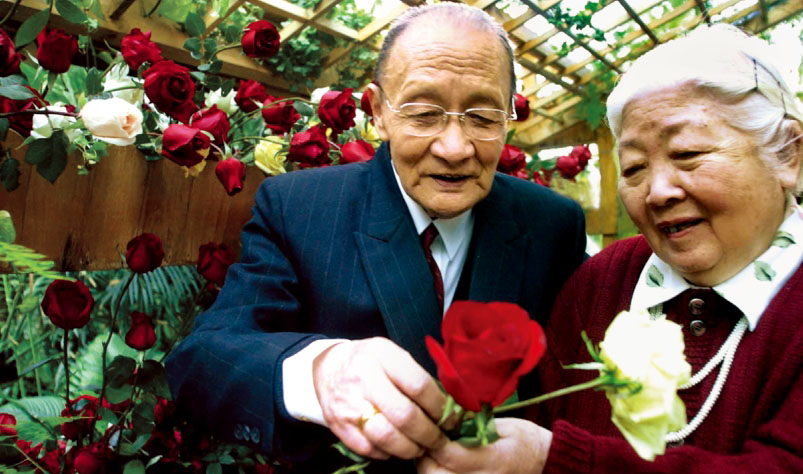
The couple of golden wedding are presenting roses to each other for a romantic Valentine's Day.
The generation and development of traditional festivals is a long course of the accumulation of a nation's historical culture. The strong cohesion and considerable comprehension of traditional Chinese festivals is just in accord with the rich and colorful history of Chinese nation. China has a lot of ethnic groups. Apart from some important traditional festivals of Han nationality, the other fifty-five ethnic groups also have their own peculiar festivals and customs. People today can easily make out an exciting picture of ancient people's social lives through the customs of festivals that originated from the ancient time and last till today. Getting close and even into the culture of these colorful festivals, you can get in touch with the essence of the Chinese culture.
Due to the development of society and the advancement of times, people's views about life have changed greatly, and the culture of Chinese festivals is changing with time, too. Since the Revolution of 1911, China entered a phase where different styles of festivals co-existed with each other. Some of them rose and some of them fell. On the one hand, a few important ones, the four major festivals (the Spring Festival, Pure Brightness Festival, Dragon Boat Festival and Mid-Autumn Festival) in particular, are still widely celebrated among people. Not only did they inherit the essence of the culture of traditional festivals, but they also developed more forms and took in some new elements of the new era. Some less important festivals, on the other hand, were gradually forgotten and had faded over the years. Recently some western festivals were introduced into China, and these "foreign festivals" such as Valentine's Day, April Fool's Day, Mother's Day and Christmas Day are becoming more and more popular among the Chinese people, especially the city youngsters.
Next page
